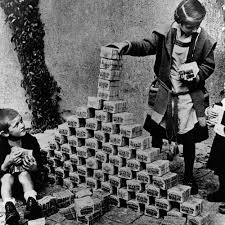- Joined
- 1 Apr 2016
- Messages
- 13,435
- Reaction score
- 540
- Country


How is money created?
Most of the money in the economy is created by banks when they provide loans.
Most of the money in the economy is created by banks when they provide loans.
Banks create around 80% of money in the economy as electronic deposits in this way. In comparison, banknotes and coins only make up 3%. Finally, most banks have accounts with us at the Bank of England, allowing them to transfer money back and forth. This is called electronic central bank money, or reserves.
Last edited by a moderator:



